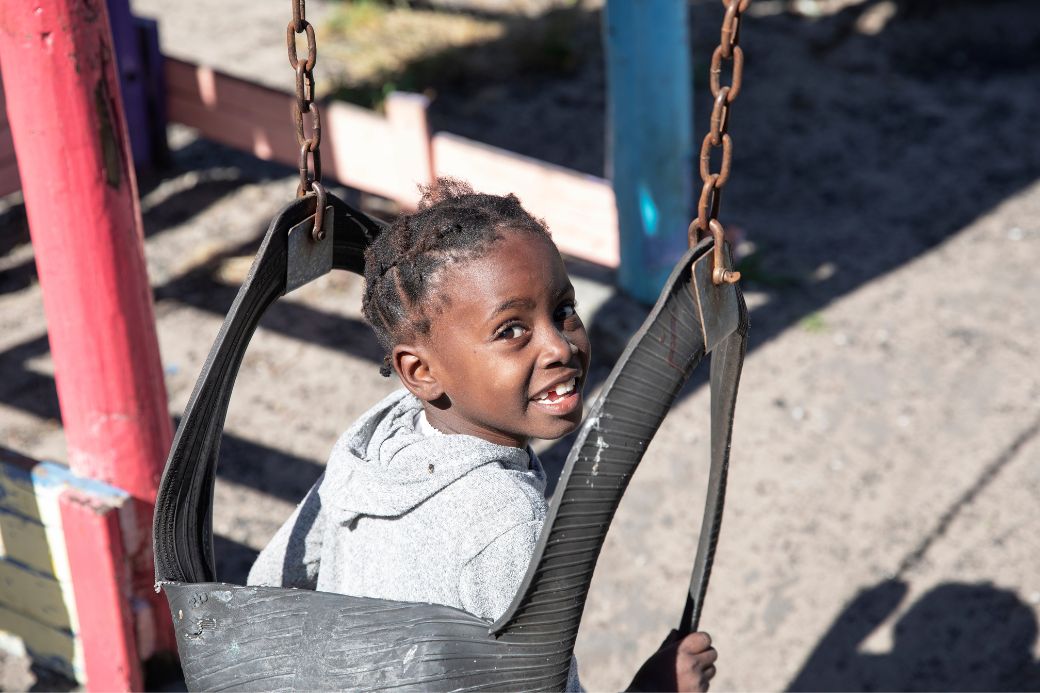It is common, during the summer months, that CESVI cooperators engaged abroad spend a holiday in Italy and spend a few days at the Bergamo office for business meetings and greetings to colleagues. On one of these occasions Samuele Silva, CESVI contact person in South Africa, told the main news regarding Philippi’s Casa del Sorriso (not far from Cape Town), the CESVI project which aims to offer, as well as welcome and protection to young people mothers who are victims of domestic violence and their children, the possibility for them of a path of rebirth and redemption that also includes looking for a job and obtaining economic independence.
At the moment in South Africa the unemployment rate is equal to 33.9%, a “record” level that reduces the chances of job placement for the guests of the Casa del Sorriso. What is CESVI doing to cope with this situation?
“The women who ask us for help have serious family problems that they are unable to report because they are economically dependent on their partners or husbands. CESVI collaborates with various training centers to help them develop new skills. But let’s try to be very pragmatic, because signing an employment contract is not easy: a simple cooking course may not lead to a position as a cook’s assistant in a restaurant, but allows those who frequent it to cook products to be resold at the edge of the restaurant. streets or outside a school. This is also an income-generating activity. We are also participating in an innovative project, that of the Vuku Zenzele multi-recycling cooperative, composed mainly of women and dedicated to sorting recyclable waste, a new possible job outlet for our beneficiaries. CESVI has made available a converted space near the Casa del Sorriso, where a company appointed by the municipality for the collection of waste to be recycled brings the packaging. The women separate the different types of plastic and a partner company acts as an intermediary with the buyers (companies that then take care of recycling). In the peripheral areas of large cities, such as Philippi, informal collectors are not recognized but they do a great service to the community: we are helping to formalize this activity and to strengthen it ”.
After 15 years of activity, what is the impact of CESVI’s activity in terms of raising awareness on the problem of violence against women?
“CESVI is a well-known reality in Cape Town. Our field operators are in contact with both the main institutional players and those of civil society. We are frequently called to organize seminars and workshops even outside our operational area and at the community level we see the first fruits of our work. Unfortunately, however, the national statistics continue to be alarming and it will still take time to eradicate this problem once and for all. We are investing more and more in raising the awareness of the new generations in order to create the conditions for a future free of violence ”.
Finally, looking at children, what are the main threats affecting them to Philippi and what does CESVI do for them?
“The life of the little ones is poor in possibilities. There is school and nothing else for them. The area where we operate is overpopulated and the children don’t even have a place to do their homework because the houses are small. They therefore find themselves spending a lot of time on the street, with all that this entails. Furthermore, the children here do not have many examples to follow and the opportunities for growth are minimal. Thanks to the collaboration with other associations to which we give space to the Casa del Sorriso, we also try to fill this void, providing an alternative space, mainly for play and entertainment, where girls and boys can stay in safety and meet educational models for them “.
